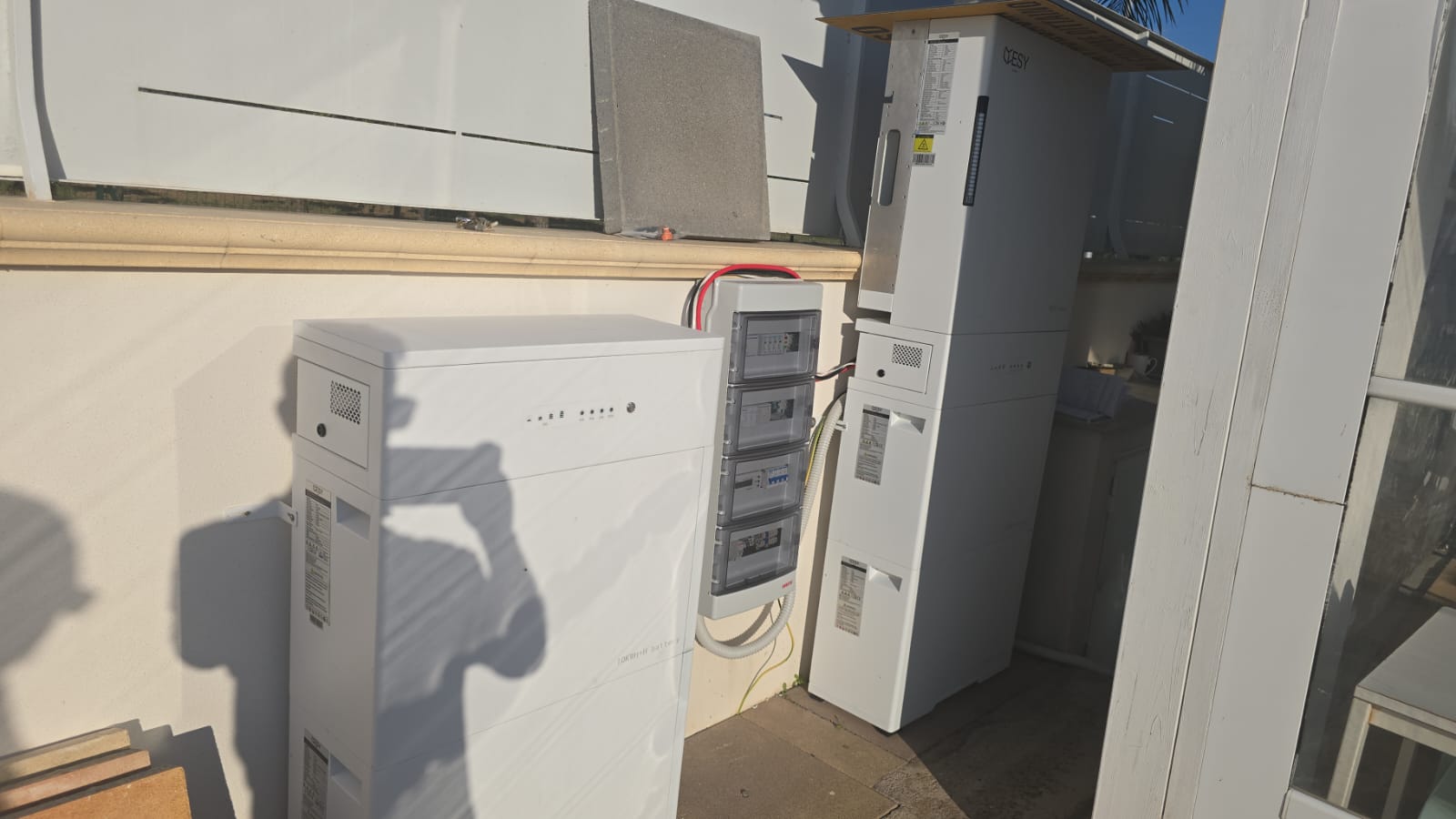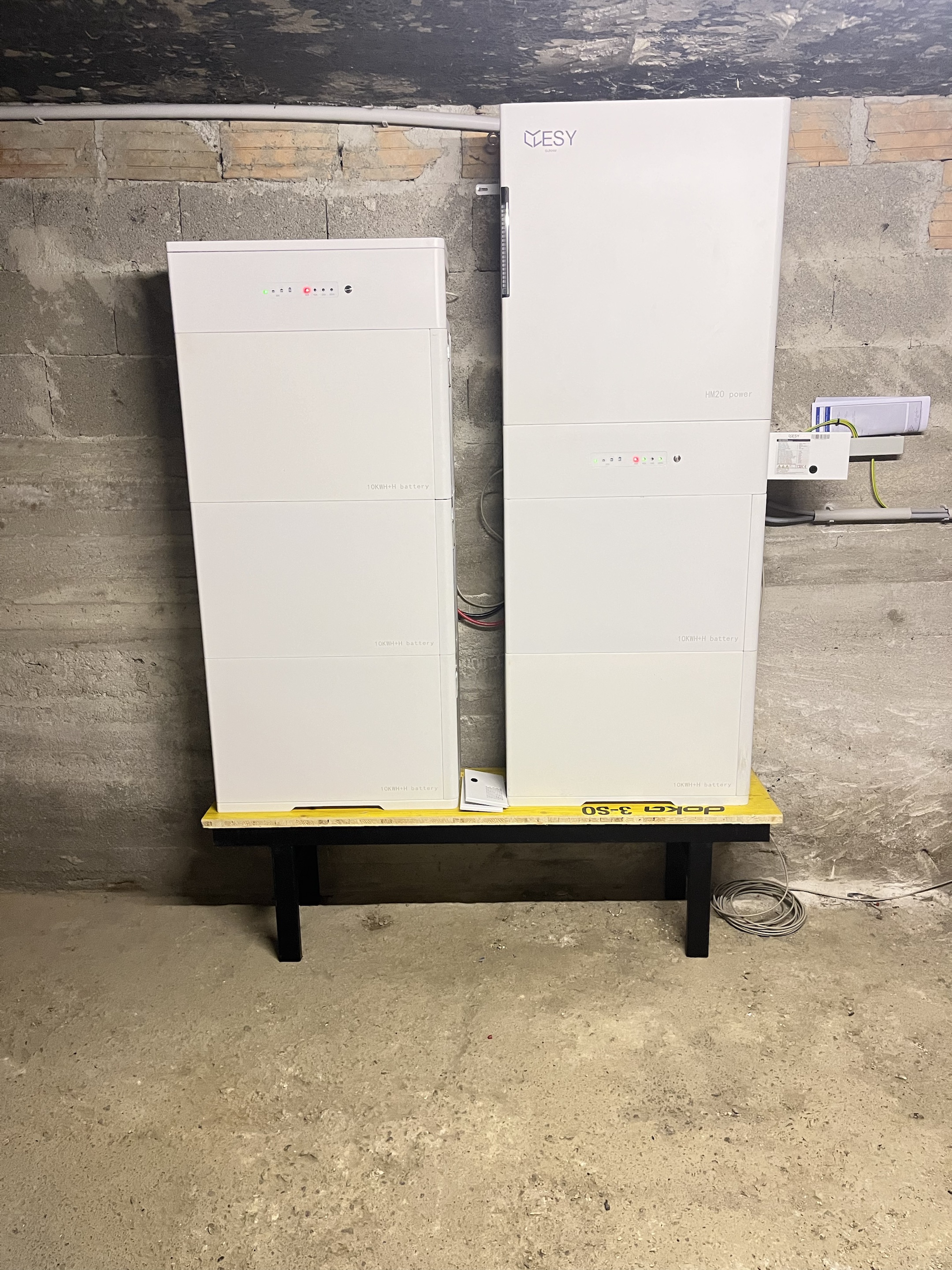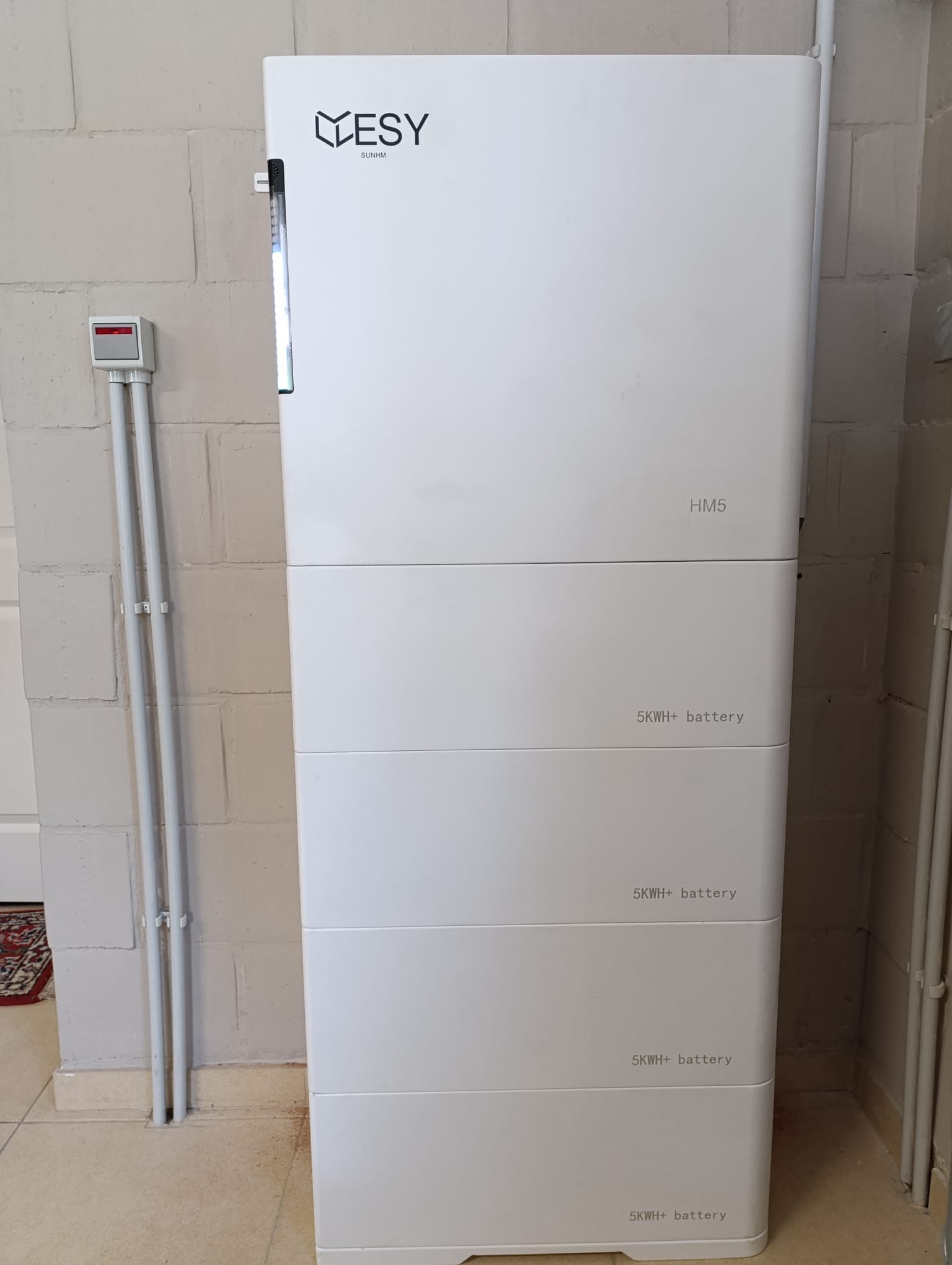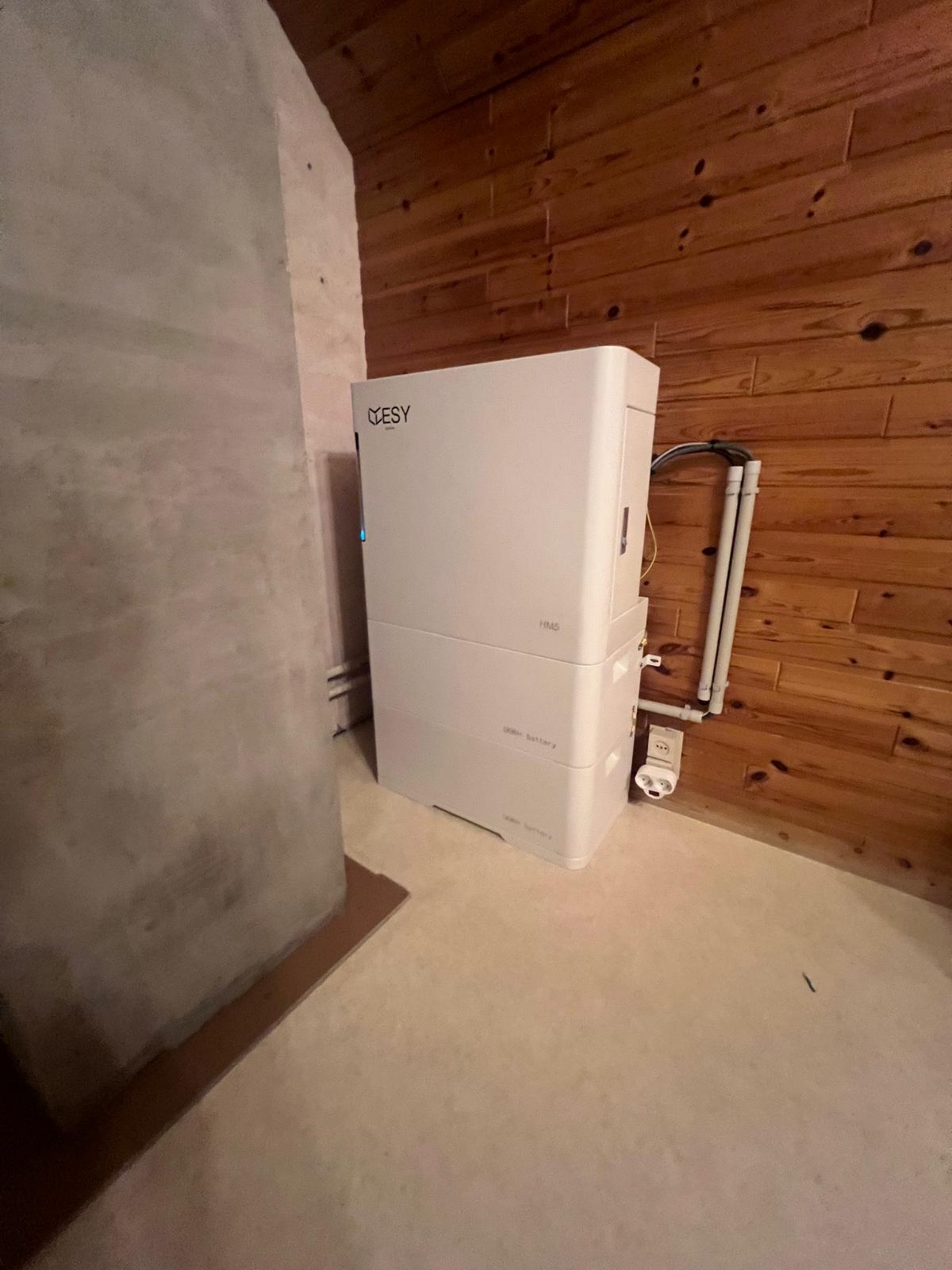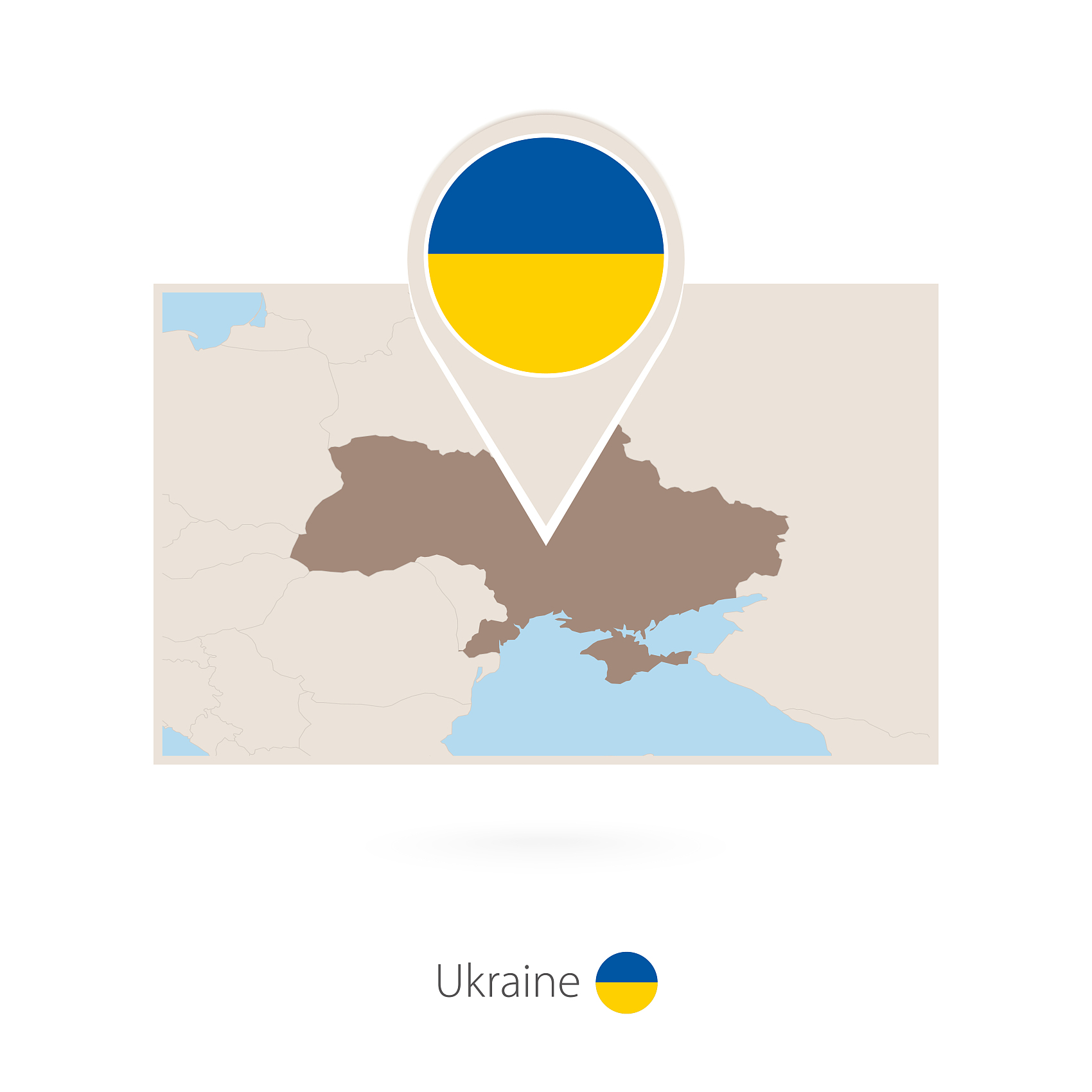
1. Current Status and Growth Drivers of the Ukrainian Energy Storage Market
In recent years, the rapid development of the Ukrainian energy storage market has been primarily driven by frequent damage to energy infrastructure and strained electricity supply. The conflict has severely impacted Ukraine's energy infrastructure, resulting in a loss of over 80% of its thermal power generation capacity, with the largest hydroelectric power plant also suffering significant damage. This has made the electricity supply in Ukraine extremely unstable, pushing both residents and businesses to urgently seek new power solutions, thereby driving demand for energy storage products.
Particularly in the current geopolitical context, the stability of power supply has become a key national security issue. Ukraine's power generation capacity has dropped from 40GW before the conflict to just 10GW today, while demand peaks at 12GW in summer and 16GW in winter, highlighting a significant power deficit. Reliance on nuclear power and renewable energy has become inevitable for Ukraine, with energy storage systems playing a crucial role in this process.
Ukraine has a population of about 37 million. By the end of 2022, the country's installed power capacity was approximately 54GW, with thermal power accounting for 35% and nuclear power 26%, together making up 60% of the total. In terms of generation structure, total electricity generation in 2022 was about 114TWh, with nuclear power contributing 55% and thermal power 18%, together accounting for 74%. Due to severe damage to power facilities, electricity shortages for residents have worsened. By mid-April 2023, Ukraine's generation capacity had fallen to around 10GW, with nuclear power plants providing 7GW, thermal and hydroelectric plants supplying the rest, and more than 2GW coming from installed renewable energy sources, mainly photovoltaic power.
2. Government Support and Market Opportunities
In response to the increasingly severe power challenges, the Ukrainian government has actively introduced a series of policies. For example, on April 24, 2023, Ukraine’s Deputy Minister of Economy, Nadiya Bihun, announced that Ukrainian citizens can now apply for interest-free loans to purchase solar panels and storage equipment, with a maximum loan amount of 480,000 UAH (approximately $13,000 USD) ) and a repayment period of 10 years. This policy, implemented in cooperation with multiple banks, has significantly lowered the financial barriers for residents to install photovoltaic storage systems, thus driving rapid market growth.
Additionally, the Ukrainian parliament has passed laws abolishing import duties and VAT on power generation equipment and batteries, further reducing the installation cost of photovoltaic storage systems. These policy measures have greatly stimulated demand in Ukraine's photovoltaic storage market, leading to the rapid adoption of residential solar storage systems. Currently, about 70,000 households in Ukraine have installed solar panels, but this figure is minimal in the face of rapidly growing market demand.
To further ensure energy supply, the Ukrainian government has also launched the "Energy Resilience Plan," encouraging communities and public facilities to install distributed energy systems. Under this plan, the government will provide financial subsidies and technical support to promote the installation of photovoltaic power generation and storage systems in schools, hospitals, and government buildings. This decentralized energy deployment not only provides reliable electricity to every community and household quickly but also effectively reduces the risk of centralized power plants being targeted.
The Ukrainian government also plans to increase the share of renewable energy from the current less than 10% to 25% within the next five years, providing significant growth potential for the photovoltaic storage market. With international support, Ukraine has also initiated the "Solar Marshall Plan" to quickly restore energy supply through large-scale deployment of distributed photovoltaic power generation and storage systems. Energy expert Andree Böhling noted that distributed solar facilities can quickly provide reliable energy to every community and household. This strategy not only meets the daily power needs of Ukrainian residents but also enhances the resilience of the overall energy system by reducing reliance on centralized power facilities.
3. In-Depth Analysis of Market Demand
The demand for energy storage systems in the Ukrainian market continues to rise, driven not only by strained electricity supply but also by rising electricity prices. According to the BBC, by mid-April this year, Ukraine had lost more than 80% of its thermal power generation capacity, and the largest hydroelectric power plant had been damaged. In the capital Kyiv, most buildings now experience at least 10 hours of power outages daily. Green Deal Ukraina estimates that by the end of May, Ukraine's power generation capacity was only about 10GW (down from about 40GW before the conflict), with approximately 7GW coming from nuclear power plants, and the remainder from thermal (mainly coal) and hydroelectric plants. Over 2GW of additional power comes from installed renewable energy sources, primarily photovoltaic power.
The Ukrainian Ministry of Energy announced that from June 2024 to April 30, 2025, household electricity prices will increase to 4.32 UAH/kWh (approximately $0.107/kWh), a rise of about 64%. This has prompted more households to consider reducing electricity costs by installing photovoltaic storage systems. ESY SUNHOME's HM series products have significant competitive advantages in this market environment. The HM6 and HM12 single-phase all-in-one energy systems, along with the HM15 and HM20 three-phase systems, can meet the diverse needs of households and small commercial users. These systems generate solar power during the day and use stored electricity at night to ensure 24-hour uninterrupted power supply. The accompanying app also offers multiple energy management modes, allowing users to optimize energy use according to their needs. Additionally, users in agriculture and other commercial sectors have shown great interest in this efficient and reliable energy solution, especially in the current market environment of high energy costs.
The industrial and commercial sectors also show strong demand for photovoltaic storage systems. In a speech this June, Ukrainian President Volodymyr Zelensky emphasized that solar panels and storage facilities should be installed in every school and hospital as soon as possible. This policy highlights the growing importance of photovoltaic storage systems in ensuring energy supply for critical social facilities.
Market research data suggests that by 2025, the Ukrainian photovoltaic storage market's annual compound growth rate is expected to exceed 30%. This growth is primarily driven by strong government policy support, continued energy price increases, and the urgent demand for energy independence among residents and businesses.
It is believed that ESY SUNHOME's products have advantages in technical performance, price competitiveness, and after-sales service, which will enable it to quickly gain a favorable position in this rapidly growing market.
4. Market Prospects and Commitment of ESY SUNHOME
In the Ukrainian market, ESY SUNHOME's energy storage solutions have broad market prospects. With excellent technical performance and flexible application scenarios, ESY SUNHOME's HM series products can help Ukrainian households and businesses effectively address challenges related to power shortages and rising electricity prices, while enhancing the resilience of Ukraine's overall power system through distributed energy systems.
ESY SUNHOME recognizes that Ukraine's current energy crisis presents not only challenges but also opportunities to redefine its energy structure. ESY SUNHOME is committed to providing high-quality photovoltaic products with professionalism and rigor to help Ukraine build a green home and create a better life. Notably, ESY SUNHOME has local after-sales teams and warehouses in Europe, ensuring fast technical support and after-sales service for the Ukrainian market while maintaining a stable and efficient supply chain. This localized service not only meets users' immediate needs but also improves local energy management capabilities through technical training.
According to the company's strategic plan, ESY SUNHOME will further expand its market share in Ukraine in the coming years by developing customized energy solutions in cooperation with local businesses and government institutions to meet the needs of different users. The company also plans to establish a production center in Poland to reduce costs and improve market responsiveness.
The Ukrainian energy storage market is in a phase of rapid development, full of challenges and opportunities. ESY SUNHOME will play a significant role in the Ukrainian market with its advanced products and technology, helping the country achieve energy independence and power system stability. ESY SUNHOME is not only willing to support Ukraine's energy transition but also to work hand in hand with the Ukrainian people to face future challenges and opportunities, contributing to the creation of a green home and a better life in Ukraine.
